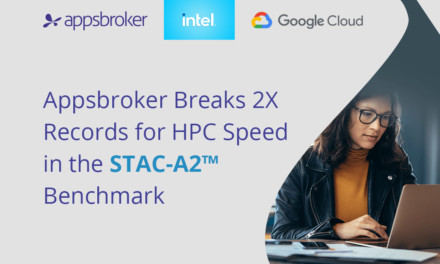In a nutshell, Platform engineering is a process and behaviour of solving business problems by ensuring developers, data engineers, and software engineers have a secure and reliable platform to test and deploy their code, workloads and applications.
Here, Ferris Hall, Senior Platform Engineer at Appsbroker, reveals how Platform Engineering is used within businesses and teams to design, build and maintain the systems and infrastructure that power other software applications.
What is the goal of a Platform Engineer?
The goal of platform engineering is to provide a resilient, secure and reliable platform foundation for software applications to be built on and consumed. This can include everything from websites with multiple tiers, to mobile apps and even games.
Platform engineering adopts a DevOps mindset and principle when deploying the infrastructure, using repeatable and automated methods and toolsets. Treating the platform like it was a software product.
One way to think about platform engineering is that its the speciality of designing and building the lifecycle of an application, to ensure resilient, secure and reliable software and applications, they need a strong base foundation, the platform.
This is what Platform engineering is all about: Ensuring the foundation of the applications is strong, reliable and well-maintained.
Why is Platform Engineering such a versatile and scalable solution?
Platform engineering can include designing, developing, and deploying the required infrastructure, and ensuring that the platform is secure, performance-capable, and highly available. This often involves working with a wide range of technologies and tools, such as cloud computing platforms, containers, Kubernetes, and configuration management of servers and databases.
Platform engineers work with other teams, such as software developers and DevOps teams, to ensure that their platform meets the needs of the organisation and its users.
This is an iterative process, just because the platform is built and works doesn’t mean it will never need to change or improve, so logging, monitoring and communication with the teams using the platform is key to maintaining a reliable and secure platform for the software or application that is still up to date and effective.
Platform engineers also need to keep up with the latest technologies and industry trends to ensure that their platform remains up to date, again this is all part of the iterative process that we tend to see with SRE.
Which technologies and toolsets are used in Platform Engineering?
Technologies and toolsets we tend to see is Git, CI/CD, Infrastructure as Code (IaC), configuration management (Ansible, Chef or Puppet) as well as logging, monitoring and alerting.
One of the key challenges of platform engineering is balancing the need for flexibility and scalability while keeping the platform secure, resilient and reliable. A platform that is too flexible and doesn’t have any guardrails or constraints may be vulnerable to security implications and threats and even bad practices.
On the flip side, a platform that is too restrictive and rigid may not be able to adapt to changing needs and requirements and may even be difficult to use by the developers and teams using it. This can result in slow development, more errors and downtime and what is commonly known as development TOIL (manual, repetitive and lacking value).
TL;DR: Platform Engineering Summary
In conclusion, platform engineering is a crucial part of modern software development, providing developers and teams with the tools and infrastructure they need to build, develop and deploy their applications quickly and efficiently. Platform engineers are building a solid foundation for repeatable, predictable and rapid software application development and release using containerisation, automation, cloud-based infrastructure, and security measures.
As a Google Premier Partner and authorised Infrastructure specialist, Appsbroker delivers digital transformation for innovators in weeks, not months or years.











